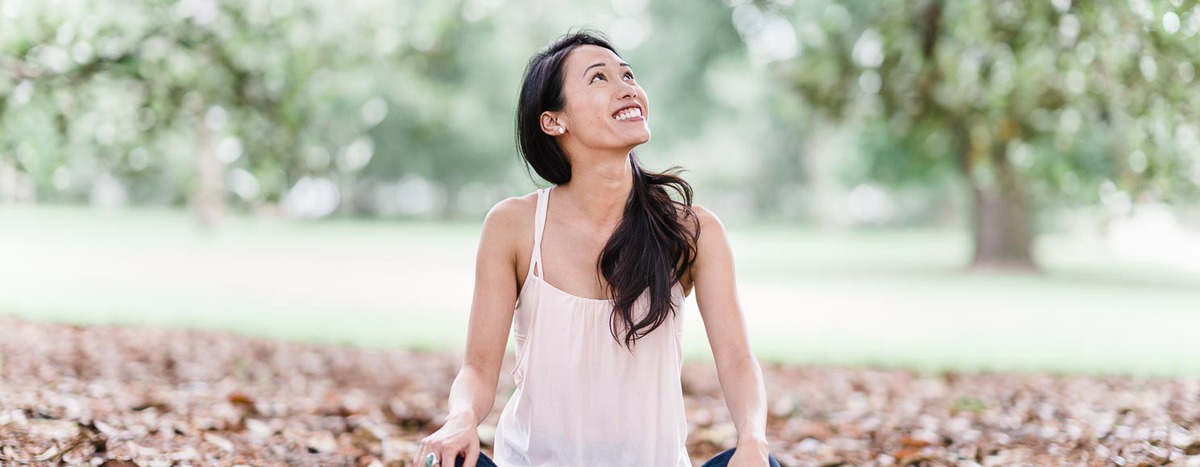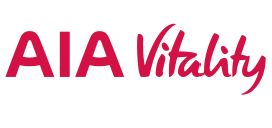Life Insurance
Lump sum payment if you were to pass away or are diagnosed with a terminal illness.
Dr. Jaime Lee - 5 min read
02 September 2020
Ancient history is brimming with wisdom that’s as relevant today as it was back then. Australian AIA Vitality Ambassador Dr. Jaime Lee explains how some of these old ideas can help us navigate our modern times.

As humans, we’re often taken with novelty. TV shows, gadgets, clothes – we live in a world where new is almost always considered to be better than old. Some of it’s natural, some of it’s a result of our fast-paced consumer culture.
Our fascination with novelty seems to extend to ideas, too. There’s no shortage of ‘gurus’, authors and even social media influencers putting forward their ideas for a ‘good’, meaningful and balanced life these days. But at the heart of everything we know now about living well is timeless wisdom; wisdom that’s been around for thousands of years.
I personally find great comfort in this wisdom. We are living in uncertain times, and sometimes all I need to do is to pick up a book, or read a passage, and I feel better; as if I’ve suddenly been handed a tool I completely forgot I had.
So while these modern-day gurus, authors and influencers certainly have their merits, I’m interested in retracing some of those roots, and finding some old advice that is still relevant for our lives today. After all, while the trappings of our lives have changed considerably over the centuries, the human experience, and the trials and tribulations of human life, haven’t changed a bit.
Ancient Chinese philosopher Lao Tzu wrote a book called the Tao Te Ching. It was written in the fifth century BC, and one of the underlying premises of the book is literally about doing nothing, about non-action. It doesn’t mean we should be lazy or complacent, more that we should learn to ‘go with the flow’ of our lives.
The book talks about how striving and straining for too much in life can be counter-productive. Of course, there is place in life for striving – but it’s about learning to let go, recognising what’s happening, and moving with the shape of events rather than trying to fight or resist what’s happening to us. In our outcome and success-obsessed cultures, that’s so important to keep in mind.
The Bhagavad Gita is one of the most beautiful texts I’ve ever read. It dates back to the second century BC, and is a 700-verse Hindu scripture attributed to a sage named Vyasa. There’s a quote in it that goes: “You have the right to work, but for the work's sake only. You have no right to the fruits of work. Desire for the fruits of work must never be your motive in working…
“Work done with anxiety about results is far inferior to work done without such anxiety, in the calm of self-surrender. Seek refuge in the knowledge of Brahma. They who work selfishly for results are miserable.”
It’s really just saying that you only have control over your actions: you can’t control the outcomes. And when you recognise that, your work can become not just more peaceful, but more meaningful too.
Gautama Siddhartha was from Nepal, and lived around the fifth century BC – he’s the founder of Buddhism. He talks about: “Do not dwell in the past, do not dream of the future, concentrate the mind on the present moment.”
Of course, of all the wellness ideas in the world, mindfulness (and the associated ideas of being present) is quite possibly the most popular right now, and these core principles have been reiterated so many times over the years (perhaps most famously in Eckhart Tolle’s hugely popular The Power of Now). And if you compare what Siddhartha is saying even to the Bhagavad Gita, it’s along the same lines: focus on what you can control, and not on what you can’t.
Meditation is another ancient practice that’s hugely popular in 2020, but of course is nothing new and can be traced back to ancient India. And if you fast-forward from there to ancient Rome, you’ll find Roman Emperor Marcus Aurelius writing his own book of ‘Meditations’.
What’s interesting about Aurelius is that while I’m not convinced he actually ‘meditated’ in the same way that Buddhist monks do, many of his writings reflect the same philosophies. For example:
“You have strength over your mind – not outside events. Realize this, and you will find strength.”
“The happiness of your life depends upon the quality of your thoughts.”
And, “If you are distressed by anything external, the pain is not due to the thing itself, but to your estimate of it, and this you have the power to revoke at any moment.”
The impetus of all of this being that while we so often look outside of ourselves for guidance, we actually have all of the guidance we need within us. We just need to allow ourselves to be still enough to access it – and meditation can certainly help with that.
This is more of a piece of advice from me than anything else, but when I was reflecting on what I was going to include in this article, just reading through and reminding myself of all of this wisdom provided me with a lot of consolation.
It’s normal with everything that’s happening right now to not feel OK, and the ideas I’ve shared above (and the thousands of others available!) are not meant to be simply read and discarded, but to be actively used in our lives. Turn to them when you’re finding things difficult, turn to them when you’re having a hard time, and turn to them when you need to feel comfort. That’s why they exist, and it’s why they’re just as relevant today as they ever were.
As Marcus Aurelius (and the Dalai Lama, and Buddha, and Lao Tzu, and countless others) said, our happiness depends on the quality of our thoughts. That is something we can practice at any time, in any place – and there’s no place like a global pandemic to start.

This content is sponsored by AIA Vitality NZ
AIA Vitality is a personalised, health and wellbeing programme that supports you every day to make healthier lifestyle choices.
Disclaimer:
The information in this article is general information only and is not intended as financial, medical, health, nutritional, tax or other advice. It does not take into account any individual’s personal situation or needs. You should consider obtaining professional advice from a financial adviser and/or tax specialist, or medical or health practitioner, in relation to your own circumstances and before acting on this information.